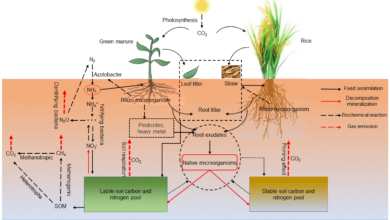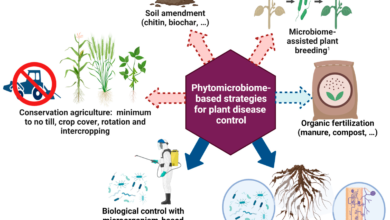Which are the Two Main Climatic Factors Responsible for Soil Formation: Unveiling the Essentials
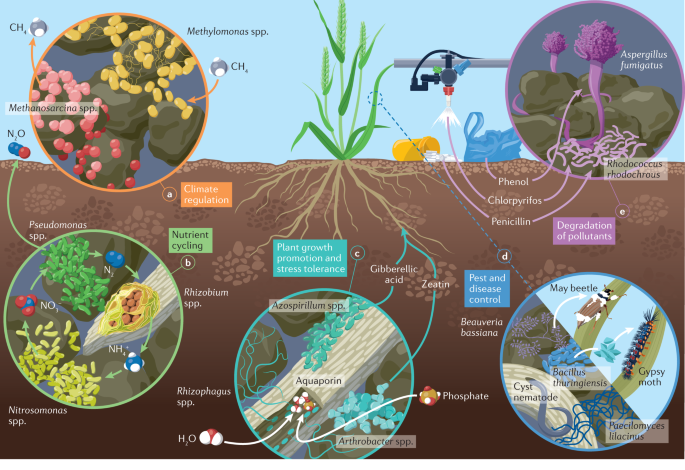
The two main climatic factors responsible for soil formation are temperature and rainfall. Temperature fluctuations and different levels of rainfall contribute to the breaking down of rocks and the formation of cracks, which eventually leads to the formation of soil.
These factors play a crucial role in the gradual and slow process of soil formation, as they affect the actions of various natural forces like rain and wind. Additionally, the climate in a particular region can indirectly impact soil formation by influencing the microorganisms present in the area.
With an increase in temperature and rainfall, the process of soil formation is enhanced.
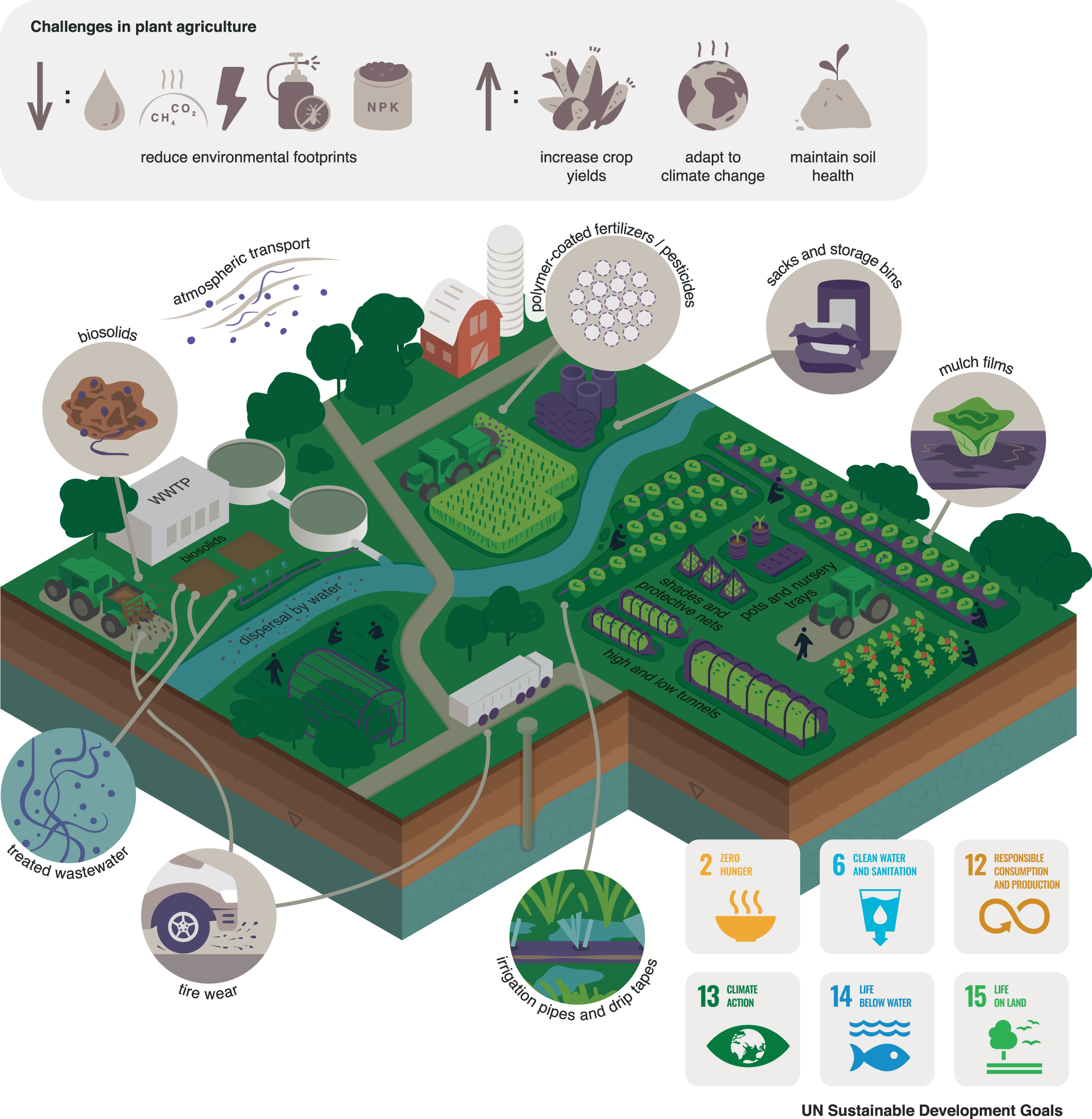
Credit: www.nature.com
The Role Of Temperature
Temperature and rainfall are the key factors shaping soil formation. Rainfall aids in rock breakdown, while temperature fluctuations cause rock cracks. These climatic elements directly influence soil development in diverse ecosystems, impacting vegetation growth and sustainability.
Effects On Soil Formation
The role of temperature in soil formation is crucial. Temperature plays a significant role in the breakdown of rocks and minerals, which is a key step in soil formation. Fluctuations in temperature, both hot and cold, can affect the physical structure of rocks, leading to the formation of cracks and fissures. These cracks provide pathways for water and other weathering agents to penetrate the rocks, accelerating the process of rock breakdown. Additionally, temperature influences the activity of microorganisms in the soil, which play a vital role in decomposing organic matter and releasing essential nutrients.
Fluctuations And Soil Evolution
Temperature fluctuations have a direct impact on soil evolution. The expansion and contraction of rocks due to temperature changes result in the creation of smaller particles, contributing to the overall soil texture. When rocks expand during periods of high temperature and contract during times of low temperature, they undergo a process known as thermal weathering. This process breaks down the rocks into smaller fragments, which eventually become part of the soil matrix. Temperature fluctuations also influence the movement of water in the soil. During hot conditions, water evaporates more quickly, leading to drier soil.
On the other hand, during colder periods, water freezes and expands, causing soil to crack and become more permeable. These changes in soil moisture and porosity directly impact the composition and fertility of the soil. In conclusion, the role of temperature in soil formation cannot be underestimated. Fluctuations in temperature contribute to the physical weathering of rocks, the activity of microorganisms, and the movement of water within the soil. Understanding the effects of temperature on soil formation is vital for sustainable agricultural practices and land management. 
Credit: pubs.acs.org
The Impact Of Rainfall
Soil formation is influenced by two main climatic factors, rainfall and temperature. These elements impact the process by breaking down rocks, causing pressure and temperature fluctuations that form cracks. Rainfall and temperature variations play significant roles in the gradual, organic matter accumulation process that leads to soil formation.
Breakdown Of Rocks
Rainfall plays a significant role in the breakdown of rocks, contributing to the process of soil formation. When rainwater falls on the surface of the Earth, it penetrates into the cracks and crevices present in rocks. The water seeps through these openings and then gets trapped. As the temperature fluctuates between hot and cold, the water expands and contracts, exerting pressure on the rocks. Over time, this repeated expansion and contraction cause the rocks to crack and break into smaller pieces. This process, known as weathering, is crucial in the breakdown of rocks and the eventual formation of soil.
Pressure And Soil Formation
The pressure exerted by rainfall is instrumental in the formation of soils. As rainwater seeps into the cracks in rocks, it fills up the empty spaces within. When the water expands due to temperature variations, it exerts pressure on the rocks. This pressure assists in breaking the rocks into smaller fragments. These fragments, along with the organic matter and minerals present in the rocks, undergo further weathering and decomposition. As a result, the broken-down rock particles mix with the organic matter, creating a fertile ground for the development of soil. The pressure exerted by rainfall, combined with other factors like wind and biological activity, contributes to the formation of diverse and nutrient-rich soils.
Interaction Of Climatic Factors
Soil formation is a complex process influenced by various climatic factors, with temperature and rainfall being the primary contributors. The combined influence of these factors significantly impacts soil composition and properties.
Combined Influence On Soil Composition
- Temperature affects the chemical reactions in the soil, impacting the breakdown of minerals and organic matter.
- Rainfall directly influences the leaching of minerals and the transportation of organic materials within the soil profile.
Effects On Soil Properties
- Texture: Temperature and rainfall contribute to the formation of soil particles, influencing the texture of the soil.
- Moisture Retention: Rainfall affects the water-holding capacity of the soil, while temperature impacts evaporation rates.
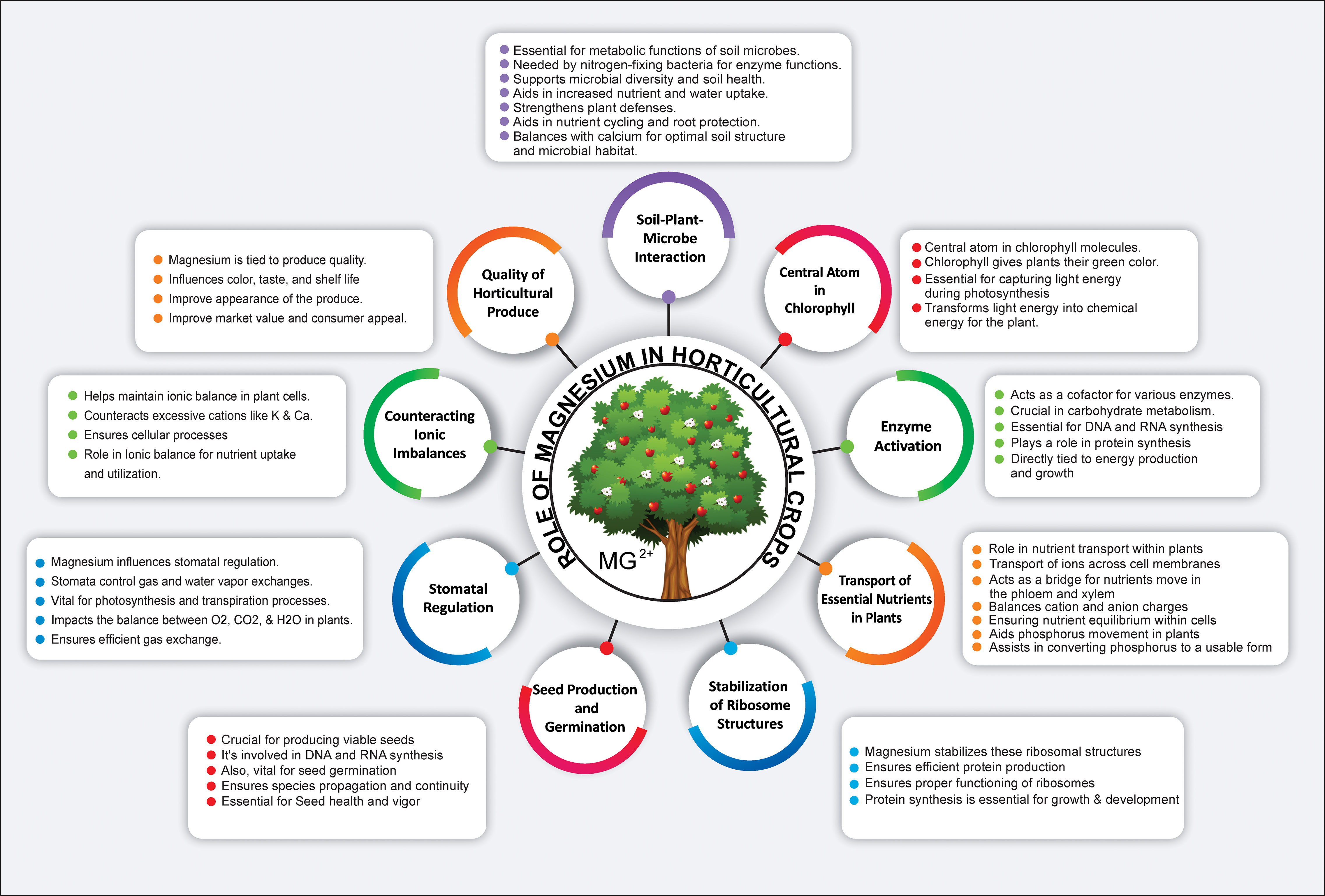
Credit: www.frontiersin.org
Soil Formation And Pedogenesis
Refer to it as pedogenesis. The two main climatic factors responsible for soil formation are temperature and rainfall. Temperature influences the rate at which organic matter decomposes, while rainfall affects erosion and the transportation of sediment, both of which contribute to soil formation.
Weathering And Impact On Soil
Soil formation and pedogenesis are intricately connected processes that rely heavily on various factors, with weathering playing a crucial role. This process refers to the breaking down of rocks and minerals into smaller particles, which significantly impacts the formation and composition of soil.
Influential Factors On Soil Formation
Weathering processes, influenced by both temperature and rainfall, play a critical role in shaping soil characteristics. The impact of these climatic factors on soil formation cannot be overstated.
Frequently Asked Questions
What Are The Two Major Climatic Factors That Influence Soil Formation?
The two main climatic factors that influence soil formation are temperature and rainfall. Temperature fluctuations and rainfall patterns play a crucial role in breaking down rocks and creating cracks that facilitate soil formation.
Which 2 Aspects Of Climate Are The Most Impactful To The Formation Of Soil?
The two main climatic factors impactful to soil formation are temperature and rainfall. These factors affect rock breakdown and contribute to soil development. Temperature fluctuations cause rock cracks, while rainfall aids in rock breakdown. These processes influence soil formation.
What Are The Factors Responsible For Soil Formation Class 8?
Temperature and rainfall are the main climatic factors leading to soil formation as they influence rock erosion and deposition.
Which Two Factors Are Responsible For Soil Erosion?
Temperature and rainfall are the main factors responsible for soil erosion, affecting soil structure and stability.
Conclusion
The formation of soil is intricately influenced by the climatic factors of temperature and rainfall. These factors not only impact the physical breakdown of rocks but also affect the presence of microorganisms crucial for soil development. Understanding the interplay of these climatic factors is essential in comprehending the intricate process of soil formation.

